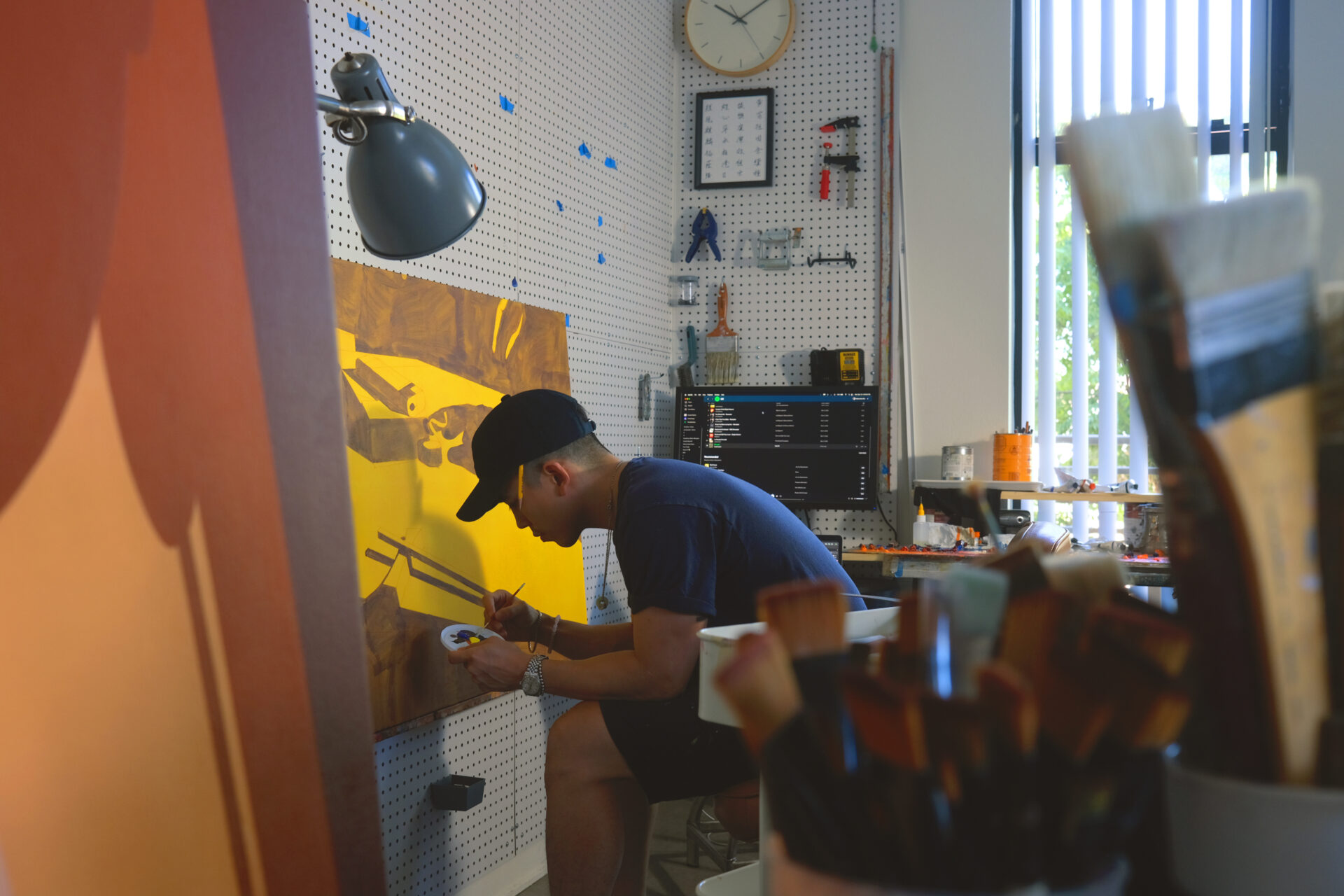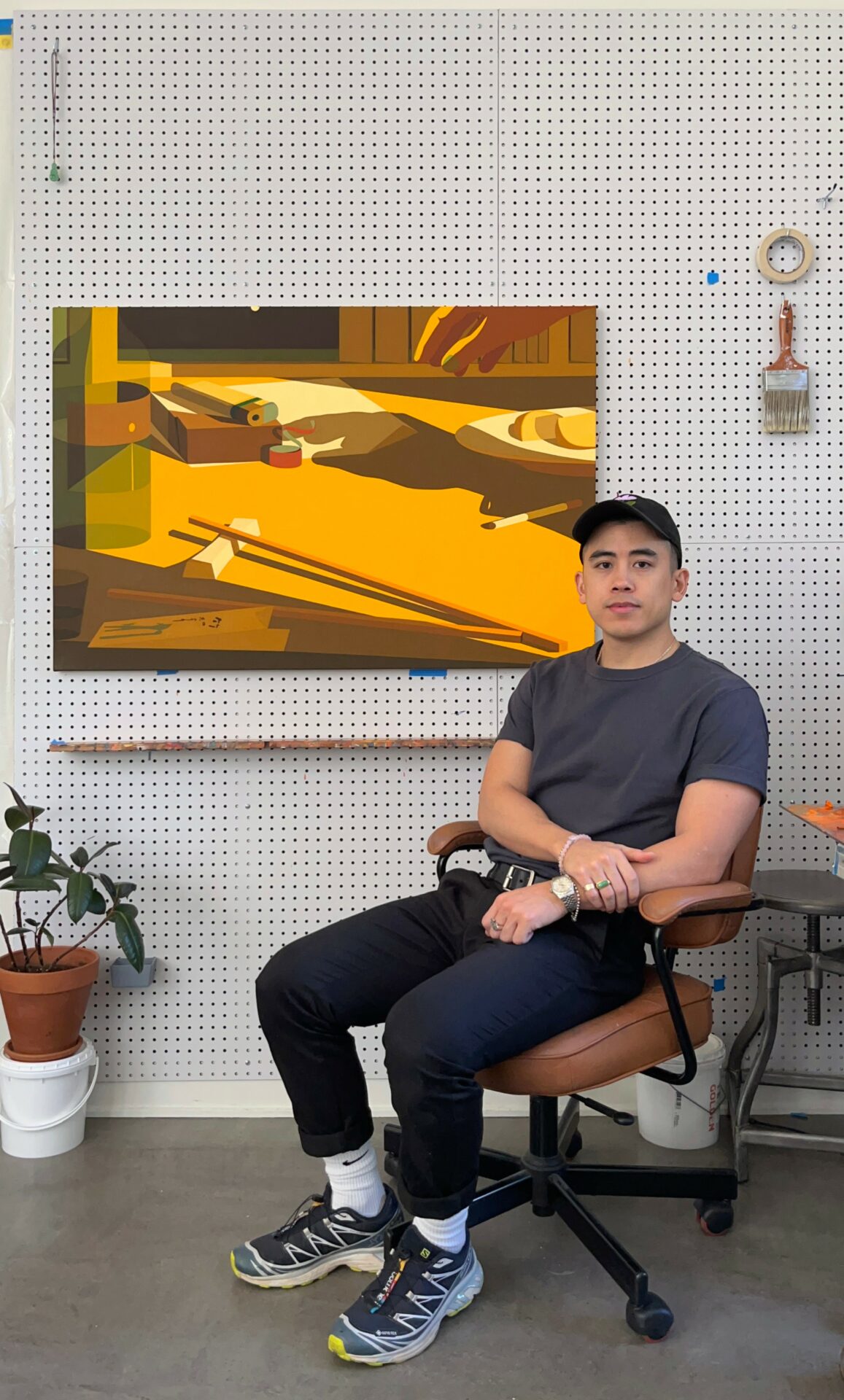We recently connected with Adrian Kay Wong and have shared our conversation below.
Adrian Kay, we’re so excited for our community to get to know you and learn from your journey and the wisdom you’ve acquired over time. Let’s kick things off with a discussion on self-confidence and self-esteem. How did you develop yours?
First off, I want to establish that this is definitely something I still actively work on and struggle with every day. But to start: for me, there is a subtle but important distinction between confidence and self esteem.
Confidence applies more to a pragmatic ability to do things; I’ve always been a very logical person and a task-oriented person, so I think this “confidence” comes naturally to me. I guess as a continuation of the previous question, time and effort is how I often conceptualize challenges. So as long as I am putting in sufficient effort and time, I have faith in the process and in my diligence.
In terms of self-esteem however, it’s a little complicated. I see it more in line with the evaluation of self-worth or accepting without conditionals. I tend to interpret questions like “is my work important” or “could I have done better” or “am I enough” with logical responses and trying to list reasons to support my answer. I’m still working on this, but therapy and a variety of mental health resources have served as invaluable tools. This could be as simple as just accepting support and talking with friends to reading or listening to self-help books and podcasts.
My confidence and especially self-esteem wavers day to day, and that’s okay.
Thanks, so before we move on maybe you can share a bit more about yourself?
I am a visual artist living and working in Los Angeles. I primarily make oil paintings, but my studio work extends to murals and some design practices as well.
What makes my work special…I’m going to deflect the question a bit, because, as best stated in Ruth Asawa’s words: “An artist is not special. An artist is an ordinary person who can take ordinary things and make them special.”
If I had to give myself some credit, I think I do what she said pretty well in my work. My paintings uplift the mundane and ordinary found in our everyday life through an observant, meticulous, and measured approach to image-making.
In general, I do find painting itself continually exciting and fascinating, though. Among a variety of things, one aspect of painting that I find really exciting is that it is (typically) a two dimensional medium that represents and reflects things in our three-dimensional world. As much as I enjoy sculptural work, they are inherently part of the world we exist in. Painting to me exhibits the ability of exceptionally simple things – colors and marks on paper – can communicate and elicit compelling thoughts and feelings.
I have a few group shows coming up, which you can stay tuned to those openings via my instagram. I also have a solo show in late March New York with Uprise Art in New York, so that’s especially exciting and what I’ll be working mostly on for the next few months!
There is so much advice out there about all the different skills and qualities folks need to develop in order to succeed in today’s highly competitive environment and often it can feel overwhelming. So, if we had to break it down to just the three that matter most, which three skills or qualities would you focus on?
1. Ambition: Dream big and set high goals, sometimes ones you don’t even know if you’ll be able to accomplish. The goal being, however, is the satisfaction in doing difficult things and the fulfillment from knowing that there was personal growth in continually rising up to meet the challenge. It takes a lot of dedication and determination that I think is not only worth cultivating, but also giving yourself credit for and being acknowledged.
2. Humbleness: I mean this less so in the sense of one’s character, and more so in a humbleness to the work. Making good paintings (or “good” anything) is really, really hard. It requires a lot of sacrifice and self-accountability to recognize our shortcomings, where we can improve, and how we can grow – especially in creative work where it requires a lot of “us” in it. So, we must embrace a humbleness that allows for self-critique, adaptation, and change within ourselves so that the work can thrive. We owe it to the work, so don’t get in the way of it. In the end, you have to be your harshest critic, because if you won’t be, someone else will.
3. Resilience: In my opinion, it’s the most important quality. Sometimes we feel very motivated, energetic, and optimistic and sometimes discouraged, fatigued, or uninspired. So, I often try to keep in mind the idea of “this too shall pass”. Whether good times or bad, it “too shall pass”. We just need to show up. Sometimes we’ll fail, sometimes we’ll succeed. But tomorrow, we’ll try again with the best we can give. If there’s any advice I’ve heard the most over the years: “it’s a marathon, not a race”. Just keep making.
What was the most impactful thing your parents did for you?
I chose this last question because as much as I can talk about effort and responsibility and resilience, I also recognize that these exist in a vacuum. In the end, I was fortunate to be born in a certain time, place, and privilege that allowed me to have the chance at certain opportunities. It takes a village, as the proverbial saying goes. And not outside of that, I had parents that ultimately supported me in my endeavors and efforts.
I admit, most times it was from a distance, and that familial bond has been a complicated and difficult relationship in and of itself, but they too were people born into certain times, places, and circumstances that allowed them certain opportunities. They did the best they could – so it just gives me another reason for me to do the best I can do too. The most impactful thing my parents did was support me in more ways than I could ever count. Thank you.
Contact Info:
- Website:www.adriankaywong.com
- Instagram: www.instagram.com/adriankaywong









